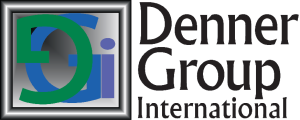Millenials Play by Different Rules
By Eric A Denniston, Managing Director, Denner Group International 6-26-2012
Takeaways: Millenials could be the “next greatest” generation like the Baby Boomers. Generational issues exist around trust, independence, competition, rebellion, individualism, collaboration, a sense of community and “optimistic, team minded players.
I have written before about Systems, or Strategic, Thinking as a management tool that has gained substantial ground over the past 20 years or so throughout all kinds of organizations. Led by companies like General Electric and Toyota, applied by non-profits, government organizations and the military, the discipline of Systems Thinking is helping to improve performance globally. I have also illustrated the impressive positive effects the skilled application of Systems Thinking has on the long-term performance of those organizations that incorporate it into their culture in order to align daily actions with strategic initiatives.
Among the processes that have proven to be valuable in sustaining that alignment between daily actions and strategic initiatives is that of continuously scanning our external environment. Many organizations perform that scanning activity within the framework of a SWOT analysis, delving into an organization’s Strengths, Weaknesses, Opportunities and Threats. This SWOT exercise is valuable because it provides important insight into key aspects of an organization that support the development of strategic objectives and actions.
I have found, however, that a SWOT analysis is lacking in one key respect: it tends to keep us rooted in thinking about today and the trends that have recently affected our organization. Using a SWOT analysis means you are scanning past results that have been affected by trends of the past and, therefore, cannot influence any future outcomes. If we are to be thinking strategically and with a more systemic discipline, we need to root our thinking in the future, on issues whose outcomes we can influence because we can plan for them.
More specifically, it is important to focus on the horizon window we are working on for our strategic objectives and our overall strategic plan, such as the typical three or five-year plan. Through a mentor of mine, Stephen Haines, I have learned some valuable techniques to maintain a forward-thinking process to scan the environment using a “future-rooted” framework.
One element of that framework is to scan future trends in the context of sociodemographic issues. These issues can have a profound influence on how we manage employees in our organizations. How we hire and train them, how we guide their growth, and how we coach and guide our managers to read and adapt to developing sociodemographic trends that are cultural in nature. Scanning these trends that in the future will be affecting our organization should take into account the traditional issues of age groups in our workplace, education levels and career trends, skill levels, compensation trends, hiring costs, etc. But there are other issues, perhaps a bit more subtle, but nonetheless just as valuable.
Generational Issues Abound
 I just mentioned cultural trends because I recently read a transcript of a commencement address delivered by noted demographer, Neil Howe, at the University of Mary Washington on May 12, 2012. In his address he makes a point of outlining with great clarity how each generation tends to impose a sense of “Because this worked for me in my generation, it will work for you in yours.”
I just mentioned cultural trends because I recently read a transcript of a commencement address delivered by noted demographer, Neil Howe, at the University of Mary Washington on May 12, 2012. In his address he makes a point of outlining with great clarity how each generation tends to impose a sense of “Because this worked for me in my generation, it will work for you in yours.”
He points out how various recent generations have both adopted and rejected some of their parents’ attitudes and preferences and gives his take on why, today in particular, it is important to recognize that there is a good chance that today’s college grads could very well be the next “greatest generation” like the one that begat we Baby Boomers. Mr. Howe talks clearly about generational issues of trust, independence, competition, rebellion, individualism, collaboration, a sense of community and “optimistic, team minded players”.
Think about this for a minute. Today’s managers in every organization are challenged by young employees whose sense of interaction and communication is driven by current technological and social trends. More often than not the resulting behaviors between managers and employees are in conflict without any guidance for resolution to improve overall performance. This conflict is rooted in what Mr. Howe is talking about – older generations being more than a little unaccepting that younger generations have a brain, too. They are likely better educated than the older generation in the sense that they have been exposed to more and different things simply because of the internet and improved global communications.
We Baby Boomers and Gen-X’ers should feel compelled to make some changes in ourselves to leverage the talents of the younger generation, rather than continue this generational habit of attempting to impose our approaches and mindsets on theirs. You might consider how this applies to serving your clients, too!
I recommend everyone read Mr. Howe’s commencement address, From Millenials to Baby Boomers, and see what we can do to change ourselves to help create that next “greatest generation”. And help them learn Systems Thinking too, of course.
You can read Mr. Howe’s commencement address at this link, which in turn came to me from John Mauldin, a respected investment counselor, whose newsletter convinces me that he, too, is a skilled systems thinker. I also encourage you to share this address with every college age person you know.
